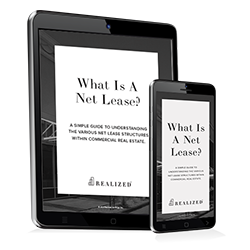[Webinar Recap] Understanding Due Diligence: Overview and Methodology

If you’re interested in learning more about pursuing a passive income without the full-time hassle of managing a property, a Delaware Statutory Trust, or DST, might represent an investment opportunity for you. A DST offers fractional ownership in commercial real estate, so you can enjoy the retained investment without the responsibility of managing the property yourself as you would with direct ownership. DSTs are also an investment option to consider if you need to conduct a 1031 exchange to defer any capital gains taxes due when you sell an investment property.
What Are the Advantages of Investing in Triple Net Leases in California?

When it comes to the potential advantages of investing in a triple net lease in California, here’s something to consider: one of every eight people in the United States lives in the Golden State.¹
How Much Can You Safely Withdraw from Your Retirement Portfolio?

Saving your entire career to ensure you have a comfortable nest egg in retirement is all for naught if you spend those funds too quickly.
What Are the Advantages of Investing in Triple Net Leases in Florida?

Florida is well known for its warm weather, sun-soaked beaches, amusement parks, and the Kennedy Space Center, but it also can be a great place for business.
Is Market Risk Systematic or Unsystematic?

Risk is an unavoidable aspect of every investment. There are many different kinds of risk, from rising interest rates to liquidity to regulatory and operational risk.
How to Get Out of a Commercial Lease in California

Signing a long-term lease on a commercial property in California can bring about increased risk for your business since you’ll be on the hook for making those lease payments for three to five years, if not longer.
Is a Townhouse a Single-Family Home?

A single-family home is the most popular type of property in the United States. Currently over 44 million Americans live in a rented single-family home. Characteristics of a single-family home include:
What is Common Law Trust?

A common law trust is a financial agreement by which a person or entity transfers ownership of assets to another person or entity through the creation of a trust deed. A common law trust is often simply referred to as trust and it is a private contract two parties to help grow the assets of the trust.
Can I Turn My House into a Rental Property?

If you’re contemplating turning your house into a rental property, there are several steps you need to follow. Homeowners explore turning their primary residence into a rental property for several reasons. Some of the main reasons why include:
What Questions Should I Ask about My Financial Planner When Retiring

A financial planner can be helpful in building retirement savings, whether you’re just starting out or nearing the end of your career.


